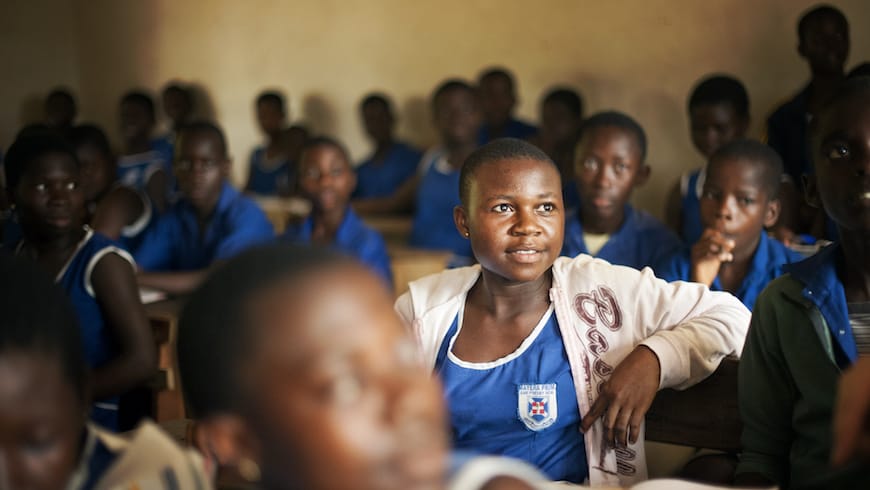Supporting Country Coordination to Define, Measure and Monitor FP Equity in Niger, (and Uganda)
Background
According to FP2030, equity in FP is defined as “Individuals have the ability to access quality, comprehensive contraceptive information and services free from discrimination, coercion and violence. Quality, accessibility and availability of contraceptive information and services should not vary by nonmedically indicated characteristics, such as age, geographic location, language, ethnicity, disability, HIV status, sexual orientation, wealth, marital or other status.” Despite global progress in access contraceptives, many individuals are still unable to benefit from quality FP services due to socially or economically defined characteristics. To ensure FP programs are responsive to the needs of all individuals, countries must begin taking measures to identify whose needs are not being met, and where FP programming is falling short. Only then can concrete action be taken to address those shortcomings and make FP programs more equitable. Equitable FP programs make information and services available, accessible, and acceptable to everyone, and ensure that they are of high quality. These elements (abbreviated as AAAQ) should be central to equity measurement efforts.
Description
Despite commitments to provide equitable access to FP information and services, many countries lack a clear definition of equity or measures to monitor inequalities in national FP programs. This portfolio sought to advance the inclusion and measurement of equity considerations in FP program design, implementation, and monitoring. At the country level, activities focused on advocacy and developing measures in response to national priorities, and at the global level activities helped produce tools and guidance and opportunities for exchange and learnings.
Goal
Promote measurement of FP equity to help FP programs reach populations with the least access to FP services, in line with the SDGs.
Approach
As part of the FP RLAs supported by R4S in 6 countries, R4S laid the foundation for country-specific equity work by conducting secondary analyses of DHS and PMA data in Niger, (Uganda, and Malawi). R4S supported MOH-led national groups to coordinate equity measurement, define equity for the country context, and identify indicators and data sources for equity monitoring. Guided by the national groups, R4S partners in each country undertook more in-depth equity analyses to advance equity programming in each country, with a particular focus on identifying regularly available FP program data to inform MOH decisions besides the standard 5-year survey data. Despite early progress in Malawi, equity activities beyond an initial secondary analysis were not realized due to lack of prioritization by the MOH. Therefore, R4S proceeded with this approach in Niger and Uganda only.
In Niger, EVIHDAF worked with the MoH to create a national working group focusing on both self-care and equity as a sub-group to the FP Technical Working Group. Prior to the political changes in Niger, the working group had defined a priority for R4S research to examine the impact of self-care opportunities to reduce inequities in access to FP. Concurrently, EVIHDAF started equity analyses of DHIS2 data from 2021 and 2022 and identified major sources of duplication impacting the FP estimates which helped the MOH to make certain corrections in the data. Unfortunately, following the political changes in Niger in 2023, USAID support for FP activities was halted and this work could not progress.
Results
Results include development of key strategic guidance and tools such as the Equity Strategic Planning Guide published on the HIPs website, a compendium of tools currently in use for measuring equity from across the globe, documentation from Uganda and Niger on national efforts to integrate equity into government policy, and integration of an Equity Module into Track20’s FP Data Pro App for use with DHIS2. Descriptions of activities below include “outcomes” rather than “findings” since primary data collection was not conducted under this portfolio.
Outcomes
Looking at FP programs through an equity lens requires the right type of data and unwavering commitment to targeting resources where inequities exist and monitoring the extent to which investments reduce inequities and consequently reduce inequalities. Across Niger, (Malawi, and Uganda), differences in FP outcomes between groups (inequality) were consistently observed based on age, religion, wealth, and geographic region. Moreover, existing data and indicators come from 5-year survey data and tend to capture measures of inequality in outcomes (FP use or knowledge, for example) but are not readily able to measure the degree to which essential elements of FP programs (AAAQ) are distributed, to help understand the drivers of those observed inequalities and inform programmatic and policy changes. Several challenges to understanding equity in FP have been raised throughout this process: lack of data on certain specific groups (e.g. people with disabilities or young people) or on program implementation (AAAQ), data quality, barriers to data access, limited capacity to analyze and interpret data in the way it is presented.
Due to political developments in Niger in 2023, the TWG was unable to translate the results of the secondary analysis into recommendations for action. However, the analysis of DHIS2 did identify major sources of duplication, which helped the MOH make certain corrections in the data.
Partners: EVIHDAF, MakSPH, PSI, Track20, FHI 360
Others Ongoing Projects

